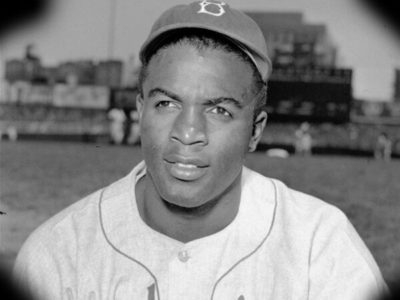For the third year in a row, all players, coaches and managers (not just Mariano Rivera) will be donning the No. 42 on their jerseys to celebrate Jackie Robinson Day on April 15. In 2011, Major League Baseball began this new tradition which comes on the heels of the retirement of his number in 1997 and the naming of the day in 2004.
This “holiday,” along with the establishment of the Civil Rights Game that is scheduled for August 19 this year in Atlanta, Ga., is a celebration of the importance of diversity in the game of baseball. Although the sport has never been as representative of the international world as it is currently, the representation of black players have been diminishing for a while.
When the Civil Rights Game began in 2007, commissioner Bud Selig said that “it is a problem needed to be looked at.” At that time, the percentage of black players was a mere eight percent. A lot of factors go into this percentage – whether its socioeconomics or other sports capturing more popularity – but the main idea is to avoid the look of the Majors before 1947 when it was all lily-white.
On April 15, 1947, Jackie Robinson first suited up for the Brooklyn Dodgers, and broke the color barrier that had barred African-American players from playing outside the Negro leagues. It was not an easy task. Prior to the Civil Rights Movement, blacks were discriminated against in various areas of life. Robinson represented the beginning of change to be sure, but it was not always easy to see the light at the end of the tunnel.
“I had to fight hard against loneliness, abuse and the knowledge that any mistake I made would be magnified because I was the only black man out there,” he wrote in his autobiography. “I had to fight hard to become ‘just another guy.’ I had to deny my true fighting spirit so that the ‘noble experiment’ could succeed…But I never cared about acceptance as much as I cared about respect.”

In today’s world of baseball, there is no other legend that demands as much respect as Robinson. Besides having Hall of Fame talent and being a fundamental part of the 1955 Brooklyn championship squad, he was a man of unbreakable character, patience and poise. His efforts paved the way for other black baseball players to pursue their dreams.
“I owe everything I have to Jackie Robinson,”Angels right fielder Torii Hunter said. “If he didn’t have the strength to go through what he did, and just walked away, who knows what would have happened? He was a great man, not only for what he did for baseball, but for society in breaking down so many barriers.”
Although it is a much different time and a much different society, there is still work to be done. Back then, Robinson had to fight against not only a colorless baseball league but people that would do anything to prolong it. Today, there is the fight to remember what he did for the sport and society as a whole, and to keep his legacy alive.



















